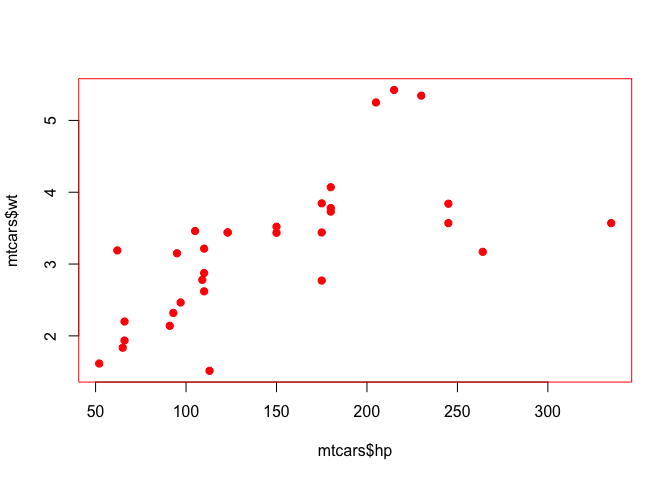

A set of functions to run code with safely and temporarily modified global state, withr makes working with the global state, i.e. side effects, less error-prone.
Pure functions, such as the sum() function, are easy to
understand and reason about: they always map the same input to the same
output and have no other impact on the workspace. In other words, pure
functions have no side effects: they are not affected by, nor
do they affect, the global state in any way apart from the value they
return.
The behavior of some functions is affected by the global
state. Consider the read.csv() function: it takes a
filename as an input and returns the contents as an output. In this
case, the output depends on the contents of the file; i.e. the output is
affected by the global state. Functions like this deal with side
effects.
The purpose of the withr package is to help you manage side effects in your code. You may want to run code with secret information, such as an API key, that you store as an environment variable. You may also want to run code with certain options, with a given random-seed, or with a particular working-directory.
The withr package helps you manage these situations, and more, by providing functions to modify the global state temporarily, and safely. These functions modify one of the global settings for duration of a block of code, then automatically reset it after the block is completed.
#Install the latest version with:
install.packages("withr")Many of these functions were originally a part of the devtools package, this provides a simple package with limited dependencies to provide access to these functions.
with_collate() / local_collate() -
collation orderwith_dir() / local_dir() - working
directorywith_envvar() / local_envvar() -
environment variableswith_libpaths() / local_libpaths() -
library pathswith_locale() / local_locale() - any
locale settingwith_makevars() / local_makevars() /
set_makevars() - makevars variableswith_options() / local_options() -
optionswith_par() / local_par() - graphics
parameterswith_path() / local_path() - PATH
environment variablewith_*() and local_*() functions for the
built in R devices, bmp, cairo_pdf,
cairo_ps, pdf, postscript,
svg, tiff, xfig,
png, jpeg.with_connection() / local_connection() - R
file connectionswith_db_connection() /
local_db_connection() - DB connectionswith_package() / local_package(),
with_namespace() / local_namespace() and
with_environment() / local_environment() - to
run code with modified object search paths.with_tempfile() / local_tempfile() -
create and clean up a temp file.with_file() / local_file() - create and
clean up a normal file.with_message_sink() / local_message_sink()
- divert messagewith_output_sink() / local_output_sink() -
divert outputwith_preserve_seed() / with_seed()-
specify seedswith_temp_libpaths() /
local_temp_libpaths() - library pathsdefer() / defer_parent() - deferwith_timezone() / local_timezone() -
timezoneswith_rng_version() / local_rng_version() -
random number generation versionThere are two sets of functions, those prefixed with
with_ and those with local_. The former reset
their state as soon as the code argument has been
evaluated. The latter reset when they reach the end of their scope,
usually at the end of a function body.
par("col" = "black")
my_plot <- function(new) {
with_par(list(col = "red", pch = 19),
plot(mtcars$hp, mtcars$wt)
)
par("col")
}
my_plot()
#> [1] "black"
par("col")
#> [1] "black"
f <- function(x) {
local_envvar(c("WITHR" = 2))
Sys.getenv("WITHR")
}
f()
#> [1] "2"
Sys.getenv("WITHR")
#> [1] ""There are also with_() and local_()
functions to construct new with_* and local_*
functions if needed.
Sys.getenv("WITHR")
#> [1] ""
with_envvar(c("WITHR" = 2), Sys.getenv("WITHR"))
#> [1] "2"
Sys.getenv("WITHR")
#> [1] ""
with_envvar(c("A" = 1),
with_envvar(c("A" = 2), action = "suffix", Sys.getenv("A"))
)
#> [1] "1 2"